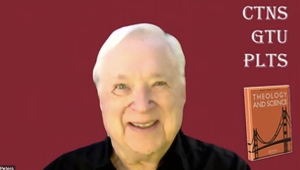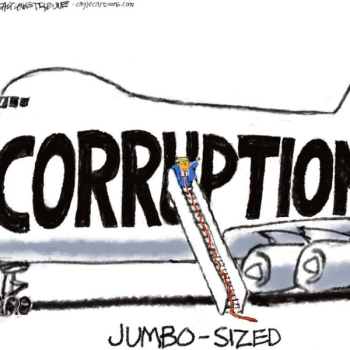The CTNS Russell Family Fellowship in Religion and Science in fact took place as scheduled at the Graduate Theological Union in Berkeley on May 3, 2025. “Finding Hope on a Warming Planet” was the theme. Dan Smith and Richard Norgaard offered lead presentations. The audience actually did ask repeatedly and in earnest: are there really grounds for hope when the prognosis of global warming and our Earth Mother’s health is so portentious?
For videos of Finding Hope on a Warming Planet just click here.
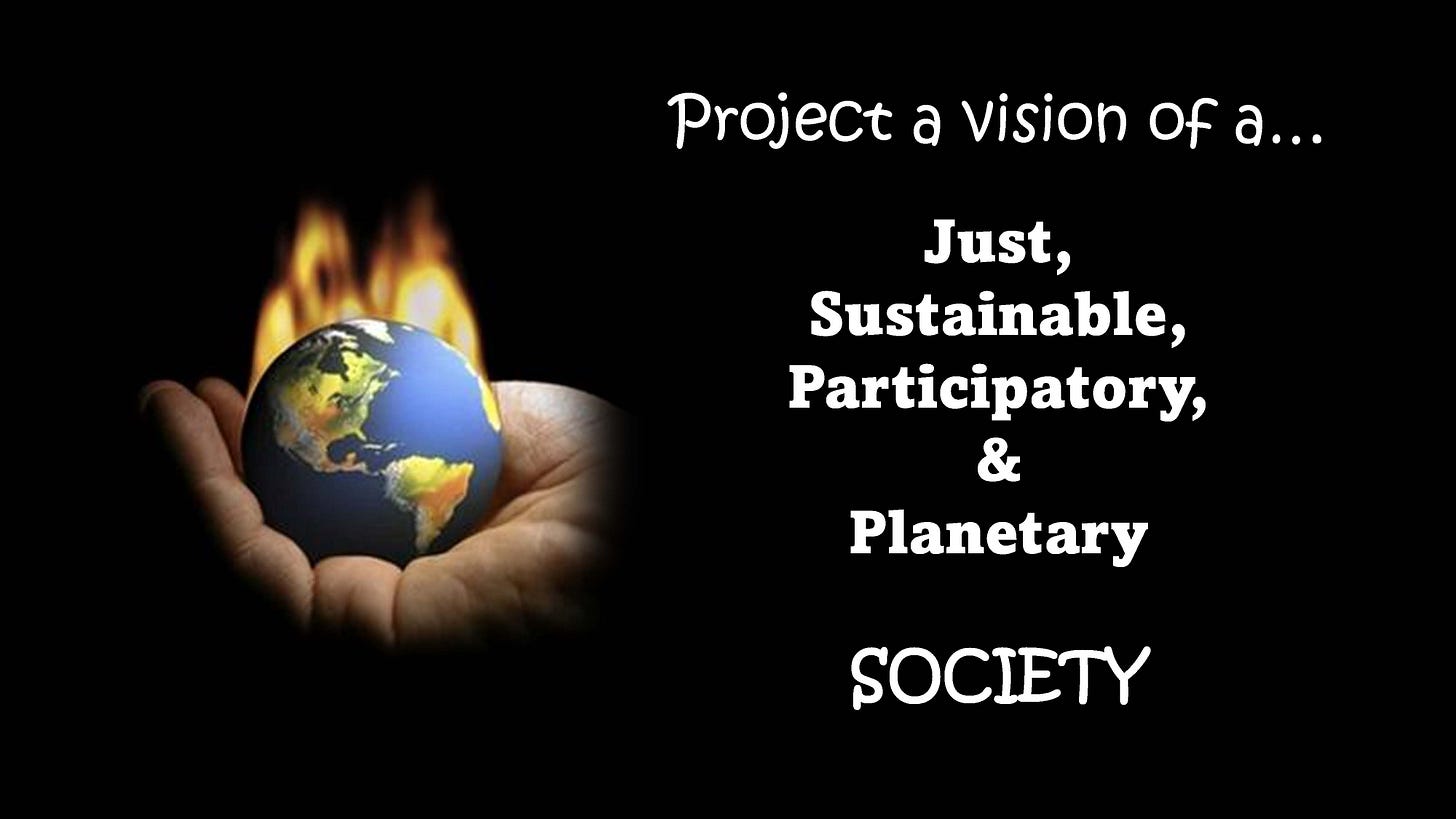
There appears to be no sound reason for hope if we rely solely on the human race to come together and cooperatively work to reduce carbon emissions, ease off reliance on petroleum for energy, cease polluting our oceans with plastics, expand uasge of wind and solar energy, and, of course, recycle. After sixty years of efforts on the part of scientists and economists to warn the human race of the eco-apocalypse to come, profiteering businesses and governments wrecklessly pillage the planet with no sense of guardianship on behalf of our children and grandchildren. The grand consumption orgy of the present generation is stealing Earth’s largess from our descendents.
But do not jump into the nihilist pit just yet. Richard Norgaard, when criticising free market economism, said repeatedly: “bad ideas breed bad actions.” So, I asked him. “Richard, if bad ideas breed bad actions, could good ideas breed good actions?”
“Yes, indeed!” Norgaard stated.
Well, then, let’s get busy with spreading good ideas in the form of a vision of a just, sustainable, participatory, and planetary society! There might be hope here.
Climate Change and the Global Common Good
As mentioned above, our two fellows providing lead papers were Richard B. Norgaard, an economics professor emeritus at the University of California at Berkeley (UCB) and lead author of the 5th Intergovernmental Panel on Climate Change, plus Daniel R. Smith, Pastor of Lutheran Church of the Incarnation in Davis, California. Let me mention that I had the delightful honor of team-teaching courses in ecology and religion at UCB.with both of these sockdolagers.
CTNS respondents include Rita D. Sherma, Oluiwatobi Ife-Adediran, and yours truly, Ted Peters.
Planet Earth is God’s creation
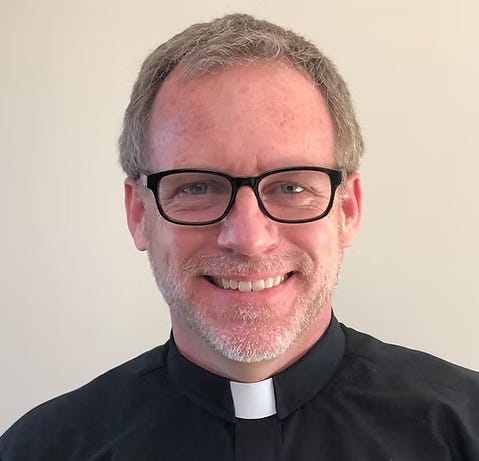
Dan Smith lifted up the image of Planet Earth as both God’s creation and our human home. We should be grateful for divine grace because creation actually cares for us.
In the historical moment we are living through especially, with a nakedly authoritarian presidential administration, threatening not only the health of the planet but our civil rights and basic decency, it may be more important than ever to embrace the goodness of creation itself as God’s promise to the planet, and to each of us personally – something no earthly ruler has power over. As Psalm 146 says, “Do not put your trust in rulers, in mortals, in whom there is no help. When their breath departs, they return to the earth; on that very day their plans perish” (Ps. 146:3-4, NRSV)(Smith 2025).
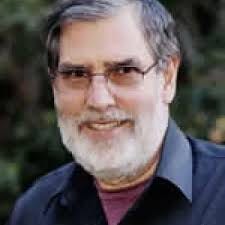
If creation cares for us, then why do we so mistreat our care-giver?
Norgaard, in trying to explain why the human race has failed to recognize the giftedness of creation or our responsibility to steward the blessings of Earth, blamed the rise of ecomic thinking. In fact, our society so relies on economic thinking that we have put faith in the free market. De facto, free market economics has become America’s civil religion. Here are the central dogmas of the religion of economism.
o individualism over care for others and the common good,
o the belief that nature can be divided up into private property,
o the belief that people can be free from nature and from social control,
o the belief that society is simply the sum of individual wants, and
o the belief that more growth will overcome the social and environmental problems
that growth has wrought (Norgaard 2025).
The reason businesses and governments feel justified in ignoring the deterioration of our planet’s biosphere is that these economic principles are trusted to save us. Norgaard calls these dogmas “bad ideas.”
Sin
Might the dogmas of economism provide the smoke screen for justifying willful ignorance?
Both Norgaard and Smith agreed that the scientific community spoke responsibly sixty years ago when warning earthlings of the ecological crisis to come. Climate change with all of its threats are now here. The petroleum industry and the governments which benifit from “drill, baby drill” have since 1980 spread disinformation in willful ignorance. Public confusion over climate change is the product of systematic disinformation in service of short-term profiteering.
In the tradition of St. Augustine, I call this willful ignorance on behalf of shortsighted profiteering by its theological name, ‘sin’. When searching for home for a fallen humanity, Dan Smith reminded us that God can be our hope for transformation. I guess I was hoping against hope that something in the human race would also provide reasons to hope that we could prevent this self-inflicted planetary disaster. But if God is our only hope, then I’ll have to increase my praying.
Conclusion
The tactics of the public theologian are discourse clarification and worldview construction. When we urgently need to enlist the entire human race to pull together cooperatively, the public theologian along with other people of good will need to construct a morally generative worldview. We need to project a vision of a future just, sustainable, participatory, and planetary society. Only with the image of a healed future can we in the present understand the challenge, make effective therapeutic decisions, and take control of the ameliorative processes.
If we find it difficult to find hope, then perhaps we should construct it. Robert John Russell recommends we construct this hope based on God’s eschatological promise.
“Prophetic eschatology offers a frame for our renewed commitment to challenging global climate change as a generalization of all those liberation theologies which lift up the oppressed in human society and offer them real hope while challenging their oppressors of all kinds”(Russell, 2022, 355).
Patheos PT 3019 Finding Hope on a Warming Planet
Patheos PT 3003 Public Theology for the Common Good
Patheos PT 3011 Politics vs Common Good Governing Part One
Patheos PT 3012 Economism vs Common Good Part Two
Patheos PT 3013 Economism vs Common Good Part Three
Patheos PT 3014 Economism vs Common Good Part Four
Patheos PT 3015 Just, Sustainable, Participatory, and Planetary. Common Good Part Five
Patheos PT 3016 Moltmann, Muslims and Al-Mizan: Common Good Part Six
Patheos PT 3017 Climate Change and the Global Common Good
Patheos PT 3018 The Cosmic Common Good
▓
Meet Ted Peters. Ted Peters pursues Public Theology at the intersection of science, religion, ethics, and public policy. Peters is an emeritus professor at the Graduate Theological Union, where he co-edits the journal, Theology and Science, on behalf of the Center for Theology and the Natural Sciences, in Berkeley, California, USA. His book, God in Cosmic History, traces the rise of the Axial religions 2500 years ago. He previously authored Playing God? Genetic Determinism and Human Freedom? (Routledge, 2nd ed., 2002) as well as Science, Theology, and Ethics (Ashgate 2003). He is editor of AI and IA: Utopia or Extinction? (ATF 2019). Along with Arvin Gouw and Brian Patrick Green, he co-edited the new book, Religious Transhumanism and Its Critics hot off the press (Roman and Littlefield/Lexington, 2022). He has recently published The Voice of Public Theology (ATF 2023). See his website: TedsTimelyTake.com.
[▓References
Norgaard, Richard B. 2025. Finding Hope on a Warming Planet: a dialogue between an economist and a theologian. Unpublished conference paper, CTNS.
Peters, Ted. 2023. The Voice of Public Theology. Adelaide: ATF.
Russell, Robert John. 2022. “The Eschatological Family of Life on Earth: A Christian Response to Global Climate Change,” Religion and Sustainability, eds. Rita Sherman and Purushotama Bilimoria. Switzerland: Springer, 353-369.
Smith, Daniel R. 2025. Finding Hope on a Warming Planet: a dialogue between an economist and a theologian. Unpublished conference paper, CTNS.


